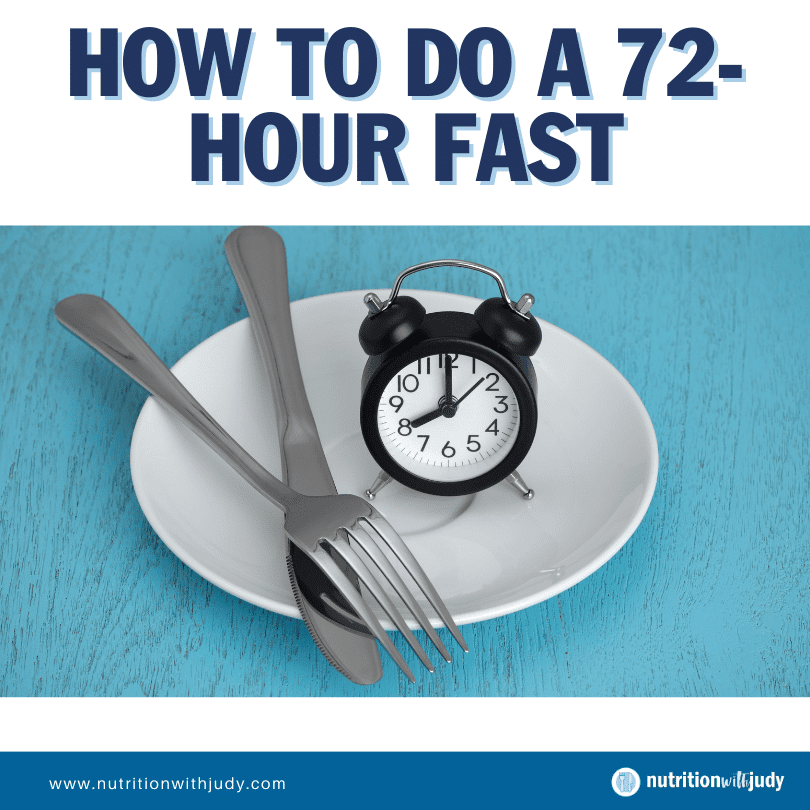

How to Do a 72 Hour Fast


Embarking on a journey towards improved health often involves exploring various nutritional strategies. One such strategy that pairs exceptionally well with the carnivore diet is the practice of extended fasting, particularly a 72-hour fast. Fasting, especially when combined with the carnivore diet, emerges as a powerful tool for healing.
Our practice focuses on root cause healing, often beginning with the carnivore diet’s meat-only elimination approach. Extended fasting, such as a 72-hour fast, offers numerous benefits and can be an integral part of the healing journey. It’s crucial, however, to approach fasting from a well-informed and safe perspective, ensuring it aligns with your individual health needs.
As we dive deeper into how to execute a 72-hour fast effectively, we’ll explore its synergy with the carnivore diet and how it can contribute significantly to your overall wellness journey.
What Is Fasting?
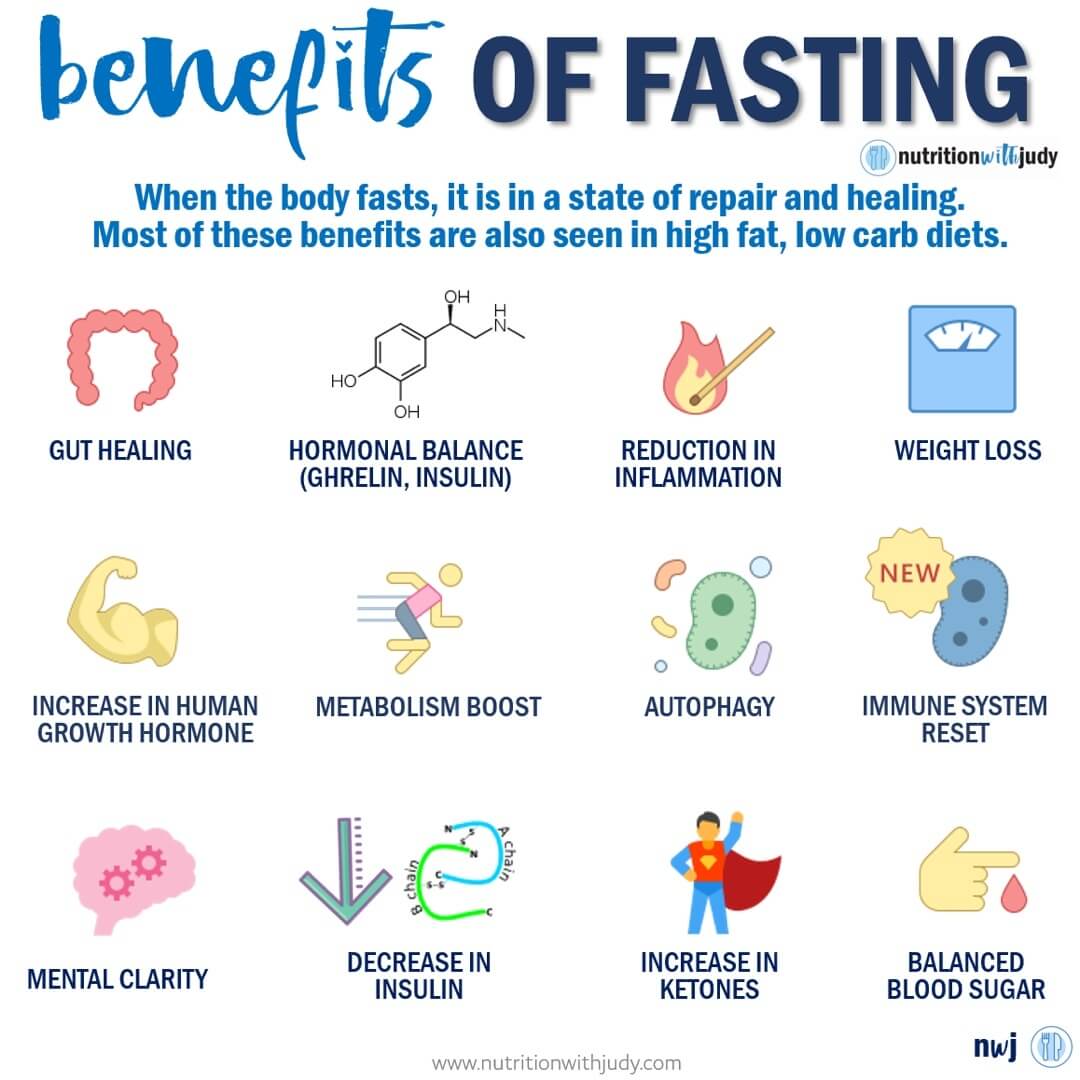

Fasting, a practice of voluntarily abstaining from food for a specific period, has been used for centuries for both spiritual and health purposes. In the context of holistic nutrition and wellness, fasting serves as a powerful tool for healing and rejuvenation. It is especially beneficial when combined with dietary approaches such as the carnivore diet, which focuses on a meat-only elimination strategy.
The reason many individuals choose to incorporate fasting into their wellness regimen is due to its multitude of health benefits. These benefits include detoxification, improved metabolic efficiency, and the promotion of cellular repair processes such as autophagy. Fasting, particularly extended fasting, can be an effective method to reset the body, support root cause healing, and complement the healing benefits of a carnivore diet. When approached correctly and safely, fasting offers a unique opportunity to enhance overall health and well-being.
What Is a 72-Hour Fast?
A 72-hour fast, which involves abstaining from all food for three full days, is a form of extended fasting. This practice contrasts with shorter fasting windows, such as intermittent fasting (16/8 method), one meal a day (OMAD), or 24-hour fasts. While intermittent fasting involves fasting for 16 hours and eating within an 8-hour window daily, OMAD restricts food intake to one meal per day. The 24-hour fast extends the fasting period to a full day, typically done once or twice a week.
Moving up the fasting scale, 36-hour fasts involve skipping a full day and night of eating, and 48-hour fasts extend this period to two full days. These longer fasting windows are more challenging and are usually not recommended for beginners without prior fasting experience.
A 72-hour fast is significantly longer and more intensive than these shorter fasting methods. It requires more preparation and is usually recommended for those who have already adapted to shorter fasting periods. This extended fast allows the body to enter deeper states of autophagy and ketosis, potentially offering more significant health benefits than shorter fasts. However, it’s important to approach a 72-hour fast with caution, ensuring it aligns with individual health needs and is done under proper guidance.
While shorter fasting windows such as intermittent fasting, OMAD, and 24-hour fasts are suitable for beginners and offer various health benefits, a 72-hour fast is a more advanced practice, best suited for those experienced with fasting and seeking deeper health benefits.
What Are the Benefits of a 72-Hour Fast?
A 72-hour fast, extending over three full days without food, offers a range of significant health benefits. One of the primary benefits is autophagy, the body’s natural process of cleaning up and recycling damaged cells. This process is believed to contribute to cellular repair and longevity. By the three-day mark of a fast, the body has begun a substantial clean-up of cells, enhancing overall cellular function and health.
Additionally, a 72-hour fast leads to a significant reduction in insulin levels and an increase in insulin sensitivity. This can be particularly beneficial for individuals with insulin resistance or those looking to improve their metabolic health. The reduction in insulin also contributes to fat burning and weight loss, as the body begins to utilize fat stores for energy.
Another key benefit is the enhancement of the immune system. During a prolonged fast, the body starts breaking down old immune cells and generating new ones, a process that rejuvenates the immune system and may contribute to better overall immune function.
Moreover, fasting for this duration can lead to a sense of increased energy and mental clarity, although this can vary from person to person. Some individuals report feeling a sense of overall well-being and improved concentration as their body adapts to fasting.
It’s important to note that extended fasting, such as a 72-hour fast, should be approached with caution and ideally under medical supervision, especially for those new to fasting or with pre-existing health conditions. The initial days of the fast may involve some discomfort, such as hunger pangs or a temporary decrease in energy, but these usually subside as the fast progresses.
Who Should Try a 72-Hour Fast?
A 72-hour fast, or extended fasting, can be beneficial for some, but it’s not suitable for everyone. Individuals who are already experienced with shorter fasting windows, such as 24 or 48-hour fasts, and are looking to deepen their fasting practice may find a 72-hour fast advantageous. It’s recommended to gradually increase fasting durations, starting from intermittent fasting or one meal a day (OMAD), and progressively moving to longer fasts. This gradual approach helps in acclimatizing the body and mind to extended periods without food.
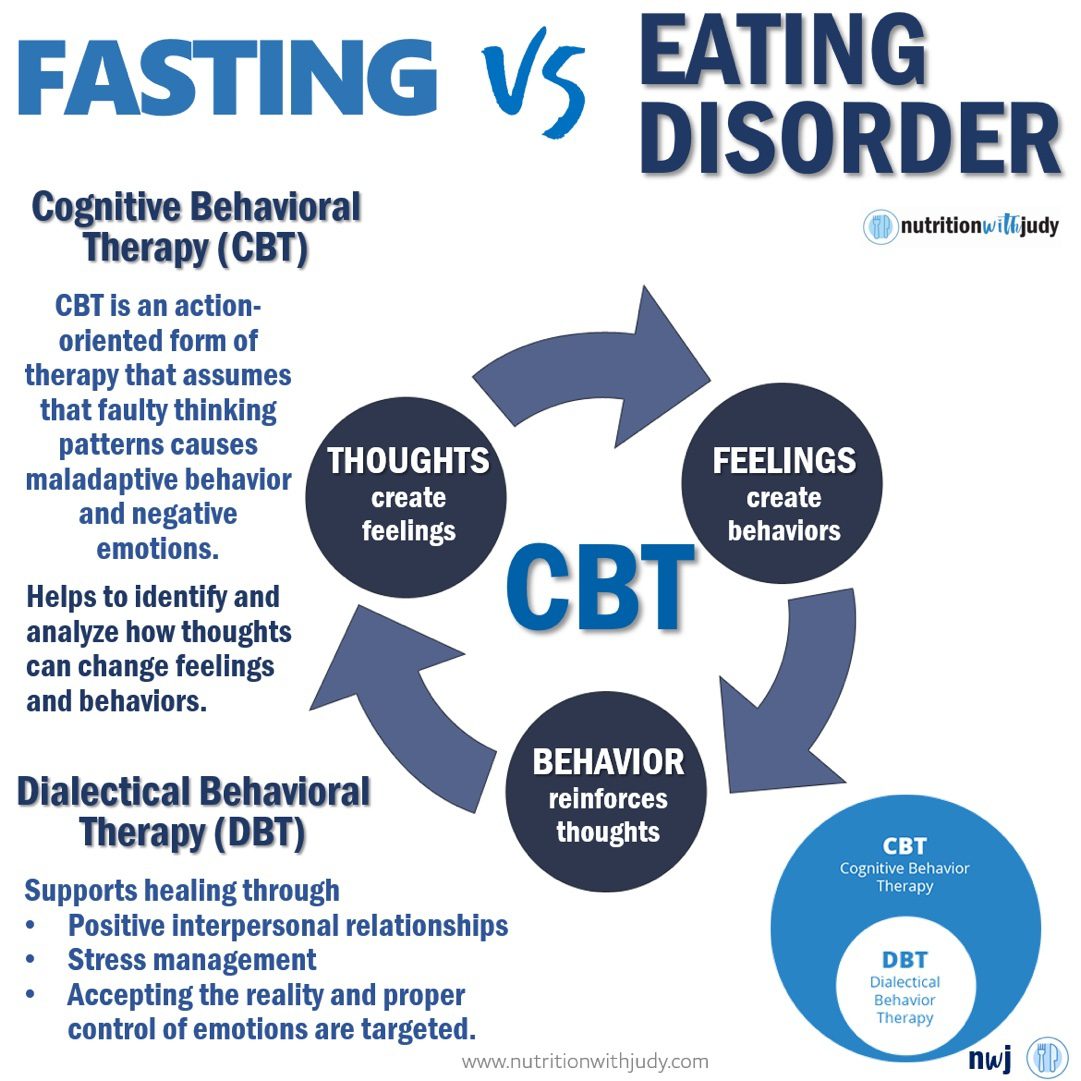

However, certain groups of people should avoid extended fasting. Individuals with a body mass index (BMI) below 18, indicating underweight, should not attempt a 72-hour fast as it may lead to further weight loss and potential nutrient deficiencies. People with a history of eating disorders, or those who exhibit disordered eating behaviors such as binge eating followed by restrictive fasting, should also refrain from extended fasts. Fasting, in this case, may exacerbate unhealthy eating patterns and mental health issues related to food intake.
It is important to approach fasting with a clear understanding of one’s physical and mental health. Extended fasting should be done for health and wellness purposes, not as a compensatory measure for overeating or to achieve rapid weight loss. Those with pre-existing health conditions, particularly metabolic disorders, should consult with healthcare professionals before attempting a 72-hour fast.
While a 72-hour fast can be a powerful tool for health and healing for some individuals, it is not advisable for those who are underweight, have a history of eating disorders, or have certain health conditions. It should be approached with caution and ideally under medical supervision.
What’s the Difference Between 72-Hour Fasts and Intermittent Fasting?
A 72-hour fast and intermittent fasting are two distinct fasting methodologies, each with its unique characteristics and benefits.
Intermittent fasting typically involves fasting for a portion of the day and eating within a specific time window. The most common form is the 16/8 method, where individuals fast for 16 hours and consume their meals within an 8-hour period. This type of fasting is relatively easy to integrate into daily life and can be practiced consistently. It’s particularly effective for improving metabolic health, aiding in weight loss, and enhancing insulin sensitivity. Intermittent fasting is also a gentler introduction to fasting and is suitable for those new to the practice.
On the other hand, a 72-hour fast is a form of extended fasting where one abstains from all food for three full days. This longer fasting duration pushes the body further into a state of ketosis and autophagy, offering deeper cellular cleansing and potentially more significant health benefits than intermittent fasting. A 72-hour fast can have profound effects on immune system regeneration and metabolic reset. However, due to its intensity and longer duration, it requires more preparation and is not recommended for beginners or those with certain health conditions.
Extended fasts such as the 72-hour fast are best undertaken by those who have already adapted to shorter fasting periods and are looking for more advanced health benefits. It’s a commitment that demands mental fortitude and physical readiness.
While intermittent fasting is a more accessible and sustainable practice suitable for beginners and for daily integration, a 72-hour fast is a more intensive approach aimed at deeper healing and is recommended for those experienced with fasting.
Preparing for a 72-Hour Fast


Preparing for a 72-hour fast requires careful planning and consideration to ensure it is done safely and effectively. Here are some best practices and tips for those considering an extended fast:
- Gradual Progression: Don’t jump directly into a 72-hour fast, especially if you’re new to fasting. Start with a simpler fasting regimen such as two meals a day, then gradually move to one meal a day (OMAD) or a 24-hour fast. Progress to 36 and 48-hour fasts before attempting a 72-hour fast. This gradual progression helps your body and mind adjust to extended fasting periods.
- Hydration and Electrolytes: During the fast, it’s crucial to stay hydrated. Drink water equivalent to about half of your body weight in ounces. Include mineral salts, such as a quarter teaspoon of salt or a sole water recipe, to maintain electrolyte balance. Magnesium supplements can be beneficial, and potassium is optional. Avoid baking soda, as it may disrupt the digestive rest intended during a fast.
- Monitoring Your Body: Pay close attention to how your body feels during the fast. If you experience any adverse effects or feel unwell, it’s important to break the fast. The objective is to benefit your health, not to push through at the expense of your well-being. Monitoring blood sugar and ketone levels can provide insights into how your body is responding to the fast.
- Breaking the Fast Safely: When breaking a 72-hour fast, start with a small meal to gently wake up your digestive system. Bone broth is often a good option, as it’s gentle on the stomach. For those who have fasted for a shorter period, a solid meal such as steak may be appropriate. You can also use apple cider vinegar to stimulate the digestive process and consider digestive enzymes to aid in digestion.
By following these guidelines, you can ensure that your 72-hour fast is conducted in a way that maximizes its benefits while minimizing potential risks.
What Can I Drink During a 72-Hour Fast?
During a 72-hour fast, it’s essential to understand what you can consume without breaking the fast. The primary goal of fasting is to abstain from caloric intake, allowing the body to enter a state of autophagy and ketosis for healing and rejuvenation. Here are some guidelines on what you can drink during a 72-hour fast:
- Water: Staying hydrated is crucial. Drink enough water, ideally about half of your body weight in ounces. This will help to keep you hydrated and can aid in curbing hunger pangs.
- Mineral Salt and Sole Water: Adding a quarter teaspoon of mineral salt to your water or following a sole water recipe can help maintain electrolyte balance. Electrolytes are vital during fasting as they help prevent dehydration and muscle cramps.
- Sparkling Water: Sparkling water is another option for those who may want a change from plain water. It can provide a feeling of variety and help with feelings of hunger, especially in the initial days of the fast. However, it’s important to choose sparkling water that doesn’t contain added sugars or artificial sweeteners.
- Iodine Drops: Adding a few drops of iodine to your water can also be beneficial. Iodine is essential for thyroid function and can support your body during the fast.
It’s important to avoid any beverages that contain calories, sugars, or artificial sweeteners, as these can interrupt the fasting process. Also, avoid caffeinated beverages as they can lead to dehydration. Listen to your body throughout the fast and if you feel unwell or show any adverse signs, consider breaking the fast.
How to Break a 72-Hour Fast
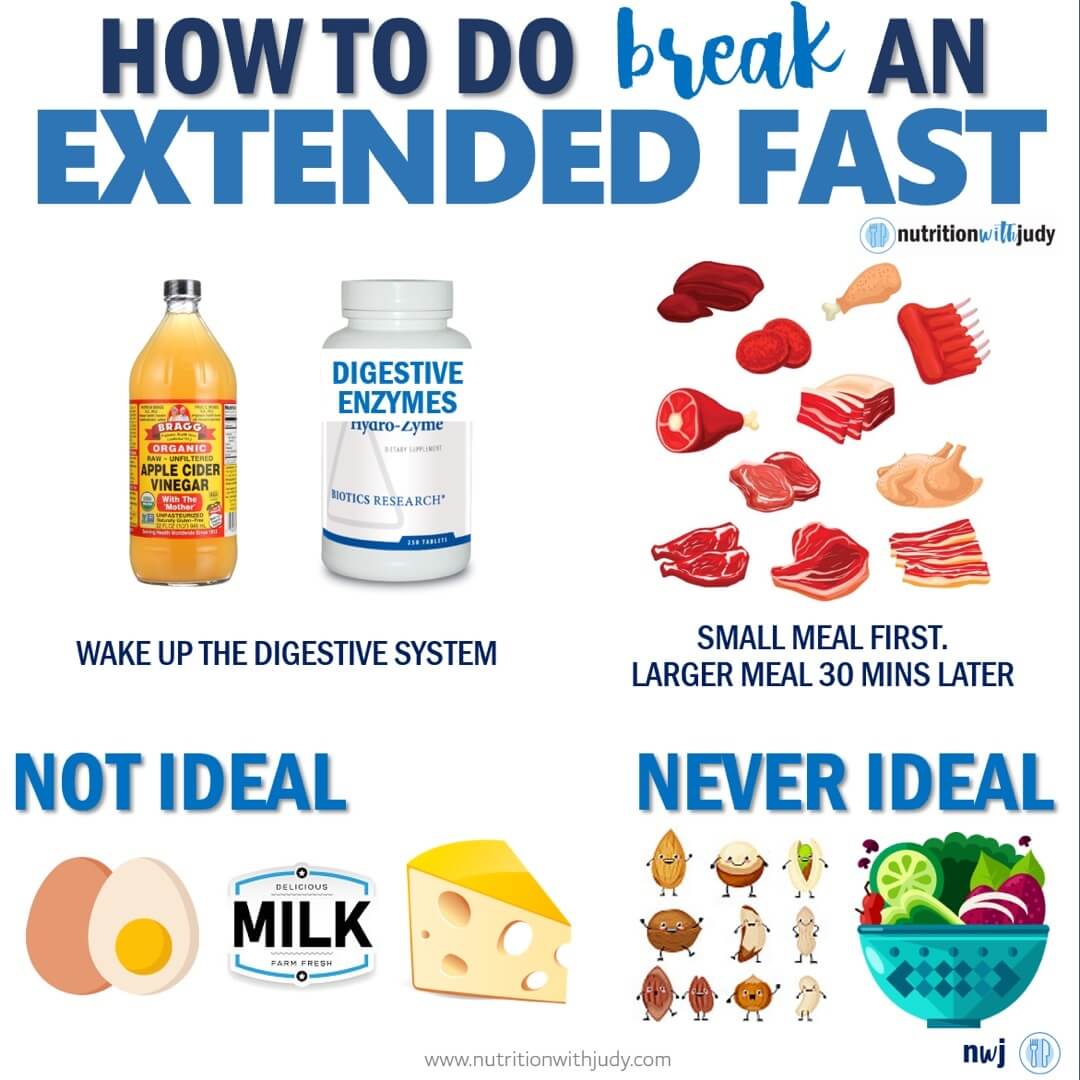

Breaking a 72-hour fast requires careful attention to reintroduce food in a way that is gentle on the digestive system. Here are some best practices and tips for ending your fast safely and effectively:
- Start with a Small Meal: Begin with a small meal to ease your body back into the digestive process. This is especially important after a prolonged period without food, as your digestive system needs time to wake up and function normally again. A small portion of easily digestible food is ideal for this initial stage.
- Use Digestive Aids: Consider taking apple cider vinegar or digestive enzymes before your first meal. These aids can help stimulate the digestive process and prepare your stomach for food intake. Apple cider vinegar, in particular, can help get the digestive juices flowing, making it easier for your body to handle the reintroduced food. For those who don’t tolerate apple cider vinegar, Hydro-Zyme is another great option for supporting digestion.
- Choose Gentle Foods: Opt for foods that are gentle on the stomach. Bone broth is often recommended as it is soothing and provides essential nutrients without overwhelming the digestive system. Light meats can also be a good option, but it’s advisable to avoid eggs, dairy, nuts, and vegetables, as they can be more irritating to the gut.
- Eat Slowly and Listen to Your Body: Take your time eating and pay attention to how your body responds. It’s normal not to eat your usual amount of calories right after a fast, so don’t rush to consume large meals. The focus should be on gradually reintroducing food and allowing your body to adjust.
By following these guidelines, you can ensure a smoother transition from fasting back to your regular diet, minimizing digestive discomfort and maximizing the benefits of your 72-hour fast.
How 72-Hour Fasts and the Carnivore Diet Work Together
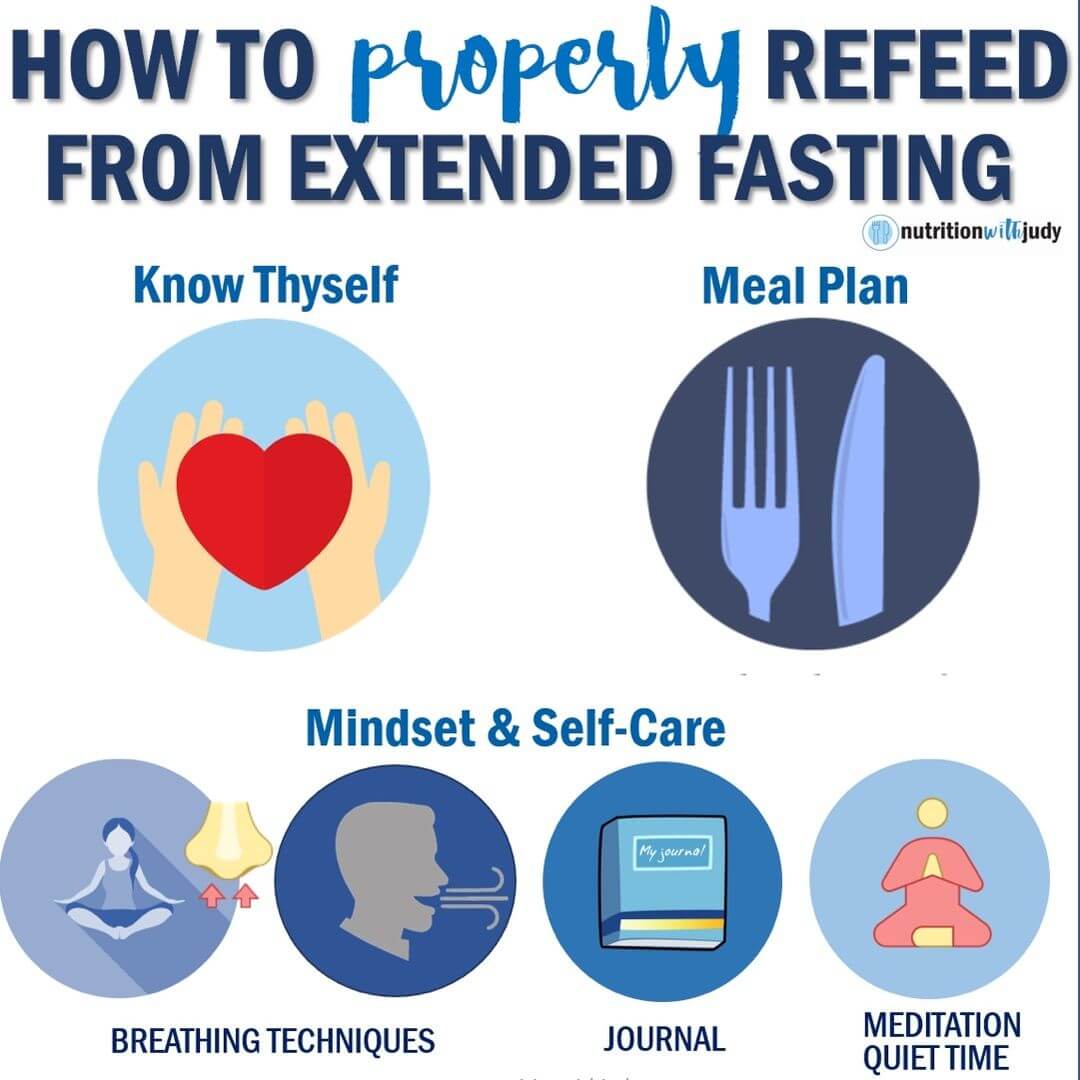

The carnivore diet and 72-hour fasts can work together synergistically to optimize health, though their relationship is nuanced. The carnivore diet, which primarily involves consuming animal products and eliminating most other food groups, is sometimes considered a form of “fast mimicking.” This is because, similar to fasting, the carnivore diet can lead to reduced insulin levels and induce a state of ketosis, where the body burns fat for fuel instead of carbohydrates.
However, there are distinct differences. While the carnivore diet provides the body with essential nutrients and a steady energy source through high-quality proteins and fats, fasting, particularly extended fasts such as a 72-hour one, deprives the body of all food intake. This total abstinence from food can deepen the state of ketosis and autophagy beyond what the carnivore diet alone may achieve. Autophagy, a process where cells clean out any unnecessary or dysfunctional components, is accelerated during a prolonged fast.
It’s important to note that nuance matters. Extended fasting isn’t necessary for everyone, as the diet itself mimics many benefits of fasting. However, incorporating 72-hour fasts can enhance these benefits, such as improved metabolic health, immune system regeneration, and deeper cellular cleansing.
When combining these two approaches, it’s crucial to listen to your body and ensure you’re not using fasting as a compensatory mechanism for overeating or disordered eating patterns. The carnivore diet can provide a solid nutritional foundation, while occasional 72-hour fasts can offer additional therapeutic benefits.
Closing Thoughts On 72-Hour Fasts and the Carnivore Diet
In our exploration of 72-hour fasts and the carnivore diet, we’ve delved into various aspects to understand their synergy and individual benefits. A 72-hour fast, an extended period of abstaining from food, significantly enhances autophagy, improves insulin sensitivity, and boosts immune system regeneration. It’s a more advanced fasting method and requires careful preparation, including gradual progression from shorter fasts and attentive hydration.
The carnivore diet, focusing on a meat-only regimen, often mimics some fasting benefits such as reduced insulin levels and ketosis. When combined, these two approaches can amplify health benefits, although the necessity of extended fasting in a carnivore diet is subject to individual health goals and conditions.
Precautions are necessary, especially for those new to fasting or with specific health concerns. Properly breaking a fast, starting with small, gentle meals such as bone broth, is crucial to ease the digestive system back into normal function. Understanding personal health goals and listening to one’s body is key in choosing the appropriate fasting window and safely incorporating these practices into a wellness routine.
Work With Our Trusted Carnivore Diet Functional Nutritional Therapy Practitioners
The Nutrition with Judy practice is honored to be a trusted carnivore diet practitioner support serving clients from around the globe. We’re passionate about helping our clients achieve root-cause healing in order to lead the best quality of life possible that’s nearly symptom-free. Our team is dedicated to educating our community about the incredible benefits of the carnivore diet. We welcome you to explore our free resources and are always available to support you through personalized protocols. Our Symptom Burden Assessment (SBA) is the perfect starting point for discovering your root cause and is required to work with our team— you can learn more in-depth about this powerful tool here.
Start your root-cause healing journey today and contact us any time with any questions or concerns.
DISCLAIMER: This content is for educational purposes only. While we are board-certified in holistic nutrition and are nutritional therapy practitioners, we are not providing medical advice. Whenever you start a new diet or protocol, always consult with your trusted practitioner first.





